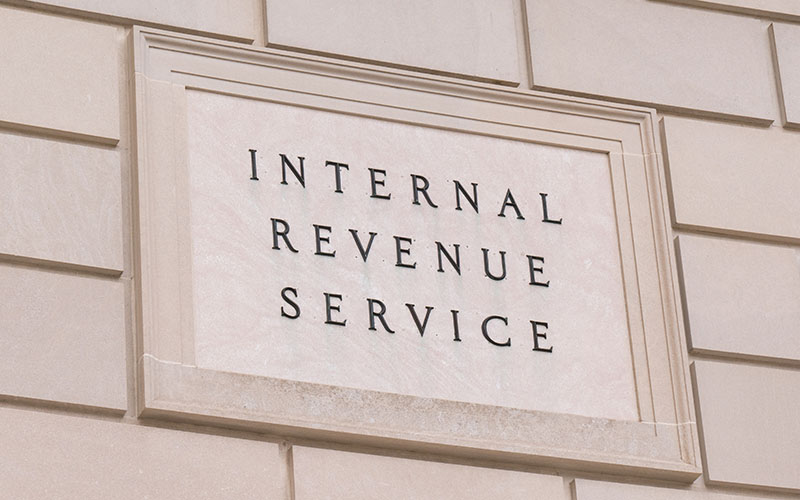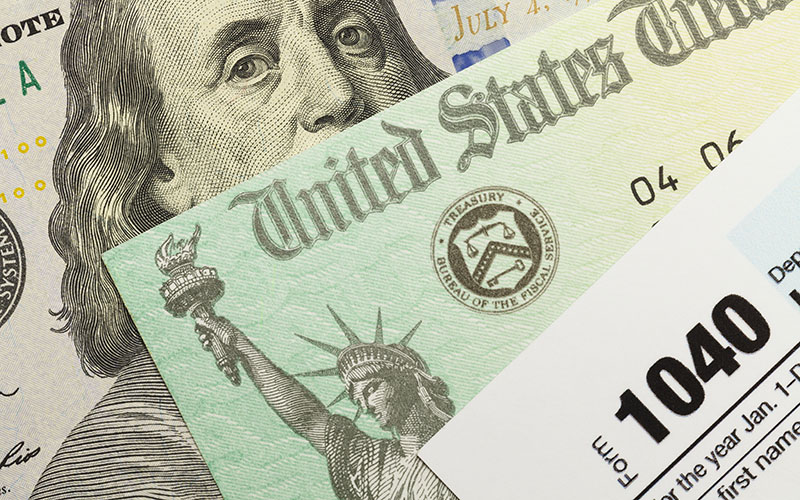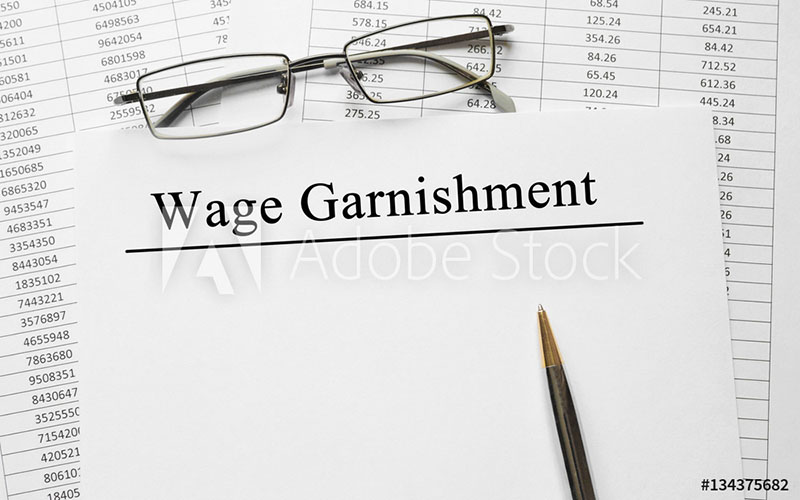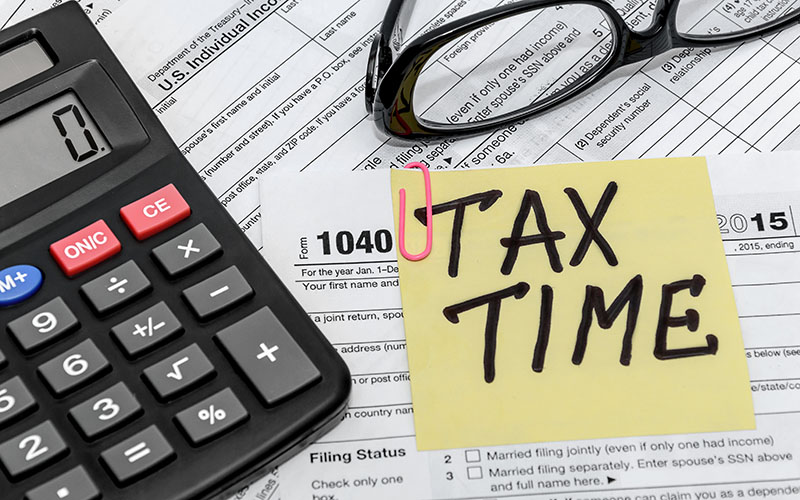7 Most Common “Tax Relief” Scams (And How To Avoid Them)
Key Takeaways
- Many tax relief scams exist, often using scare tactics, false promises, and inflated fees to exploit vulnerable taxpayers
- Common red flags include “pennies on the dollar” guarantees, high-pressure sales tactics, and vague or dishonest pricing structures
- Research firms thoroughly, read reviews, and always seek a second opinion before committing to a tax relief service
- Reputable firms offer clear contracts, free consultations, and transparent fees—and they never promise outcomes they can't guarantee
- Use trusted resources to compare verified, top-rated tax relief companies to ensure you get legitimate help

Finding a company to help you with your back taxes can be tricky.
With all sorts of tax scams out there, from calls from the “IRS” to the firms that are all over daytime TV, it can be difficult to separate the companies that really are going to help you out from those that will take your money and run.
Seeing the claims some of these companies make doesn’t help, either, because they’re specifically designed to prey on the fear and uncertainty that you’re feeling with your situation.
Most Common Tax Relief Scams

Something that doesn’t at all help the legitimate tax relief industry is the prevalence of scams that have popped up over the years.
In some cases, people lost thousands of dollars putting their trust in the wrong people.
Some previous, high-profile tax relief scams include:
J.K. Harris
Founded in 1997, J.K. Harris & Company quickly became one of the nation’s largest tax resolution companies, operating more than 450 offices at its height.
However, the company was sued by more than 20 state attorneys general for charging unethical fees, as well as promising clients they qualified for tax relief programs when they did not.
The company ultimately filed for Chapter 11 bankruptcy in 2011, with the founder being arrested on contempt of court charges.
American Tax Relief
American Tax Relief was one of the big names in television and radio ads, drawing in thousands of clients from all across the country.
The company claimed to provide quick relief from federal and state tax woes when in reality they charged clients up to $25,000 each for services that were never provided.
In the end, it was found that they cheated more than 20,000 American taxpayers out of more than $100 million.
TaxMasters
In 2012, a Texas jury slapped Houston-based TaxMasters with a $195 million judgment, alleging it had defrauded customers across the nation. The civil jury heard of more than 110,000 instances of fraud committed by TaxMasters employees and its founder.
Among the charges were allegations that the company did nothing to consult with the IRS on its clients’ behalf to prevent property liens, didn’t disclose its no-refunds policy, and falsely claimed that work would begin on clients’ cases immediately, sometimes causing them to miss IRS deadlines.
Roni Deutch
Once known in California as the “Tax Lady,” Deutch was disbarred for her deceptive practices.
She was sued by several state attorneys general for more than $34 million for defrauding clients, and it was alleged she shredded millions of documents that could have been used as evidence against her.
7 Reasons To Avoid Most Tax Relief Companies

With all these scams out there, how can you trust the information you’re reading on a tax relief company’s website or hearing in an advertisement?
Here are 7 reasons you should avoid a tax relief company that looks too good to be true, and how to avoid these pitfalls:
1. Outrageous Fees
Yes, all tax relief companies will charge you fees for representing you, and those fees will depend on a variety of factors.
Some things that can impact the price you pay for tax relief include:
- Your location
- The expertise level of the tax professional
- What type of assistance you need (Filing back taxes vs. dealing with unpaid taxes, or both)
- How much you owe
- Whether you’re an individual or a business
- The resolution you want (Installment agreement vs. Offer in Compromise)
- Whether you need relief outside of getting your taxes caught up (identity theft, removing levies on property, etc.)
- How many years it’s been since you last filed or paid your taxes
However, if the fee sounds exorbitant for your situation, such as charging you $1,500 for a simple year of unfiled taxes, the company may be trying to scam you out of your money.
How to Avoid This Scam
The best way to find out if you’re being asked to pay too much money for your tax relief is to consult with another firm.
You are well within your rights to tell a company you’re working with that you’d like to get a second opinion on your situation and that you’ll contact them again if and when you’re ready to pursue their solution.
Many reputable tax relief firms offer initial consultations and case evaluations that come with a quote, so you shouldn’t be asked to put up any money just to get an opinion.
2. Unfruitful Investigations Or Research
Some tax relief companies ask you to pay an “investigation fee” to pull your transcripts from the IRS and look more deeply into your tax situation.
However, if you’re paying a tax relief firm $500 for this investigation, it should provide some useful information, such as how much you actually owe the IRS, the expiration date of your tax debt, or where you are in the collections process.
Unscrupulous firms use this “investigation fee” as a lead-in to charging you higher fees or to rope you into paying them more to learn the full scope of your tax situation.
How to Avoid This Scam
Carefully research any firms you’re planning to do business with and read their reviews. If you see reviewers mentioning that they had to pay an “investigation fee” and were then immediately hit with requests for more money before getting better information, avoid the company at all costs.
Thankfully, there are many reputable tax relief services out there, so it shouldn’t be difficult to find one that doesn’t charge this lead-in fee.
3. Continuation Fees
If you’re paying a tax relief company to represent you for your unpaid taxes, for example, you can pretty well expect that the fee you’re quoted will cover all necessary representation in the matter. This is especially true if you’re paying a large sum.
Some firms, though, look for every opportunity to charge you extra fees to resolve “extra” parts of your case, such as checking with the IRS to ensure that any property liens have been released.
How to Avoid This Scam
There are two things you can do to determine if your chosen firm is likely to assess these extra fees: Check reviews and carefully review your contract.
Read online reviews about the firm and, if you see people complaining about being charged extra for items related to their case, you can expect this may happen in your situation.
Additionally, when you’re given your contract by the tax relief firm, ask lots of questions and carefully review the terms to ensure that your quoted fee covers these additional situations. If you’re facing an expensive or complicated case, especially regarding a corporation, it may be a good idea to have an attorney look over the contract before you sign on the dotted line.
4. Giving Bad Advice
Just because someone trots themselves out as an “expert” doesn’t mean you can completely trust their advice.
Some firms give out incorrect advice in the form of recommending a tax relief program for which you might not be qualified for, or they don’t give you complete information about your situation. These situations can be stressful and costly, with deadlines missed and agreements made that you can’t afford to pay.
How to Avoid This Scam
When choosing a tax relief firm, be sure you’re working with one that has a long history in the business, good reviews, and is licensed to practice.
Also, don’t give in to pressure. Your tax professional is there to help you through the process and work with you, not strong-arm you into taking a deal.
5. Being Dishonest
Second to bad advice, and sometimes worse, is when your tax relief company flat-out lies to you.
Lying can range from telling you they’ll get started on your case right away when you’re up against a deadline, to telling you to qualify for a specific relief program that you have no hope of getting.
Sometimes, these lies come from pure inexperience. But, more often than not, they’re told just to get your money and hope you don’t notice the difference.
How to Avoid This Scam
This is another case where getting a second opinion is likely to be helpful. If the solution that’s presented to you by your tax relief firm sounds too good to be true, it likely is, so consult with another tax relief firm, an accountant, or a tax lawyer to see if the advice you’re given holds up.
6. Scare Tactics
Of course, you never want to go too long without paying your tax debts, but if you’ve got a company pressuring you to “Pay now!” in order to make a sale, the urgency is probably manufactured.
You should never be made to feel pressured into choosing a tax relief company or selecting a settlement plan. Your tax relief professional is there to guide you through the process and help you.
Sure, they can absolutely state that your situation needs immediate attention, especially if you’re running up against a deadline, but you shouldn’t feel hounded to make a snap decision.
How to Avoid This Scam
First and foremost, don’t delay looking for a tax relief firm as soon as you’re aware you’ve got unpaid or unfiled taxes. The sooner you jump on finding a resolution, the more time you have.
If you’re in a bind and need to get started on your case as soon as possible but are feeling pressured, seek out a second opinion. Hearing from a second firm that you either have a little time or that, yes, you do need to make a quick decision can help shield you from hastily choosing an option that turns sour.
7. High Employee Turnover
Some amount of employee turnover is expected in any business; it’s just natural that people move on and move up after a certain amount of time with a company.
But if your tax relief firm is plagued by a revolving door of tax professionals, that means there’s something more going on behind the scenes that could cause issues.
Not only does a high turnover rate show that the company is not a good place to work, but that means you’re less likely to end your case with the same person who you worked with at the beginning. This can cost you valuable time and money as the new person gets up to speed.
How to Avoid This Scam
Thoroughly researching your chosen firm can help you rout out whether they have a high turnover rate.
If you see customer reviews complaining of there always being a new person assigned to their case, it’s a pretty sure sign of high turnover and internal disorganization. Also, checking sites where employees review companies, such as Glassdoor, can give you the inside scoop on whether or not it’s a company you want to pay to help you.
Red Flags To Look For
While some companies are great at hiding all the skeletons in their closets in order to rope in new customers, there are almost always some signs that the company you’re working with isn’t going to serve your best interests.
Here are 4 red flags to look for when selecting a tax relief company:
“Pennies On The Dollar” Promises
In their marketing materials, some companies make promises to settle your tax debts for “pennies on the dollar,” or far less than you owe.
However, situations where the IRS will offer these types of deals - Offers in Compromise and the like - are rare. One company simply cannot promise to get every single one of its clients a deal that has them paying less than what they owe.
If you watch television commercials or see websites emblazoned with guarantees that you’ll pay less than your full debt, steer clear of the company. Chances are they’re just making those promises to rope you into high fees to get your business.
Outrageous Claims
Much like promises that you’ll pay less than what you owe, claims that a tax resolution firm has never had a settlement denied are overblown and, at best, artificially manufactured.
The IRS is very picky about the settlement agreements it accepts, and it’s statistically impossible that every single settlement agreement a firm applies for is accepted.
If the firm you’ve chosen is making this claim, they’re either lying about how many settlements they’ve had denied, or they don’t even give the IRS the chance to deny the settlement by withdrawing the request as soon as the IRS even hints that it may be denied.
Either way, making claims such as these mean the firm is more interested in getting as many people in the door than they are actually helping people.
Overblown Qualifications
Many tax relief companies boast a “team of tax attorneys and CPAs.”
While these groups may have tax attorneys and CPAs on their payroll, the likelihood that one is actually handling your case is pretty low. This is especially true at larger firms with small proportions of tax attorneys and CPAs.
More than likely, you’ll get an enrolled agent or caseworker assigned to your case.
If you absolutely want to work with a tax attorney or CPA, hire one directly instead of trusting that you’ll get the luck of the draw.
Dishonest Pricing And Billing
Unfortunately, many shady tax relief companies prey on the fact that you’re feeling desperate and don’t know what you’re doing when dealing with your tax debt. They use this against you, often charging far more than is necessary to truly settle your case or upcharging for “extras” that should be included in your case’s resolution.
Avoid paying large fees up front, as the chance that you’ll be required to pay more down the road is higher if you’ve paid the full fee. Instead, work with companies that either offer free consultations or that allow you to pay a portion initially and then settle the rest of your fees with monthly payments.
Find Reputable Tax Relief Companies
At The Credit Review, we know it can be difficult to separate the good firms from the ones that are just going to take your money and run.
Our extensive database allows you to compare and contrast the highest-rated tax debt relief firms, finding the one that’s right for you. Learn more about your tax relief options here.
Do tax relief services really work?
A reputable tax relief service can help taxpayers lower their debt and deal with tax issues from the IRS, such as back taxes, wage garnishments, audit guidance, and working out payment agreements.
What are some signs of a tax relief scam?
- Upfront fees without any services performed
- No refunds or a money-back guarantee
- Promising to settle your debt on pennies on the dollar
- Promising to accept any case
- Shady business practices
- Asking for your financial information over the phone
What are some factors to look for in a tax relief company?
- Accreditations
- Positive reputation
- A staff with tax professionals
- Free consultation
- In-house services
- A wide variety of services that can assist with audit representation, back taxes, garnishment and levy release, installment agreements, tax liens, and more
Edited by:
Bryan Huynh
•
Product Tester & Writer



























